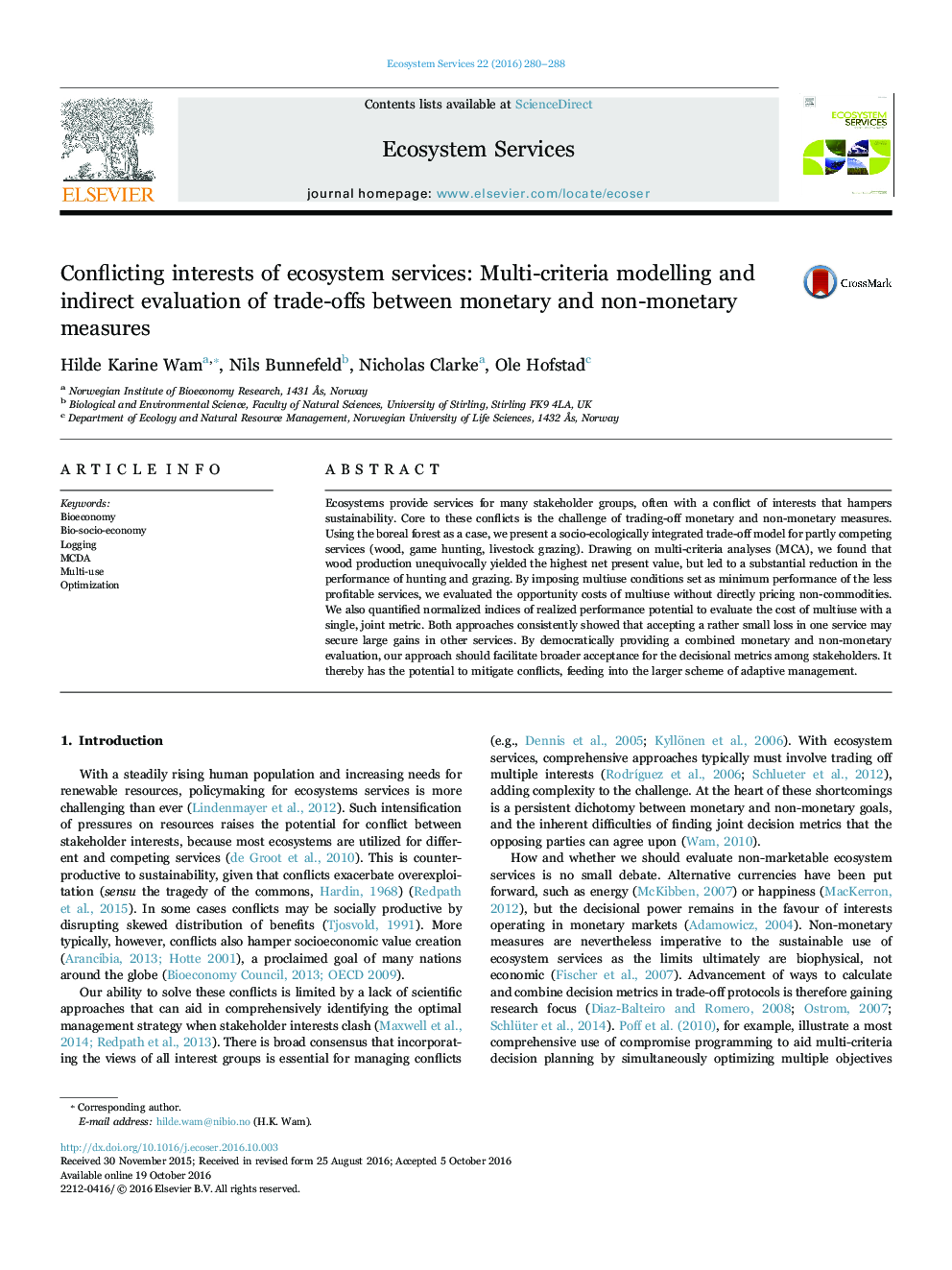| Article ID | Journal | Published Year | Pages | File Type |
|---|---|---|---|---|
| 6463591 | Ecosystem Services | 2016 | 9 Pages |
â¢Assigning values to non-commodities is a core challenge with multiuse of ecosystem services.â¢Our socio-ecological trade-off model innovatively combines indirect evaluation techniques.â¢We quantified opportunity costs of multiuse in terms of both monetary and non-monetary measures.â¢A forest case system shows how a small loss in one service may generate large gains in others.â¢Our framework can mitigate conflicts by facilitating broader accept for decisional metrics.
Ecosystems provide services for many stakeholder groups, often with a conflict of interests that hampers sustainability. Core to these conflicts is the challenge of trading-off monetary and non-monetary measures. Using the boreal forest as a case, we present a socio-ecologically integrated trade-off model for partly competing services (wood, game hunting, livestock grazing). Drawing on multi-criteria analyses (MCA), we found that wood production unequivocally yielded the highest net present value, but led to a substantial reduction in the performance of hunting and grazing. By imposing multiuse conditions set as minimum performance of the less profitable services, we evaluated the opportunity costs of multiuse without directly pricing non-commodities. We also quantified normalized indices of realized performance potential to evaluate the cost of multiuse with a single, joint metric. Both approaches consistently showed that accepting a rather small loss in one service may secure large gains in other services. By democratically providing a combined monetary and non-monetary evaluation, our approach should facilitate broader acceptance for the decisional metrics among stakeholders. It thereby has the potential to mitigate conflicts, feeding into the larger scheme of adaptive management.
Graphical abstractDownload high-res image (232KB)Download full-size image
